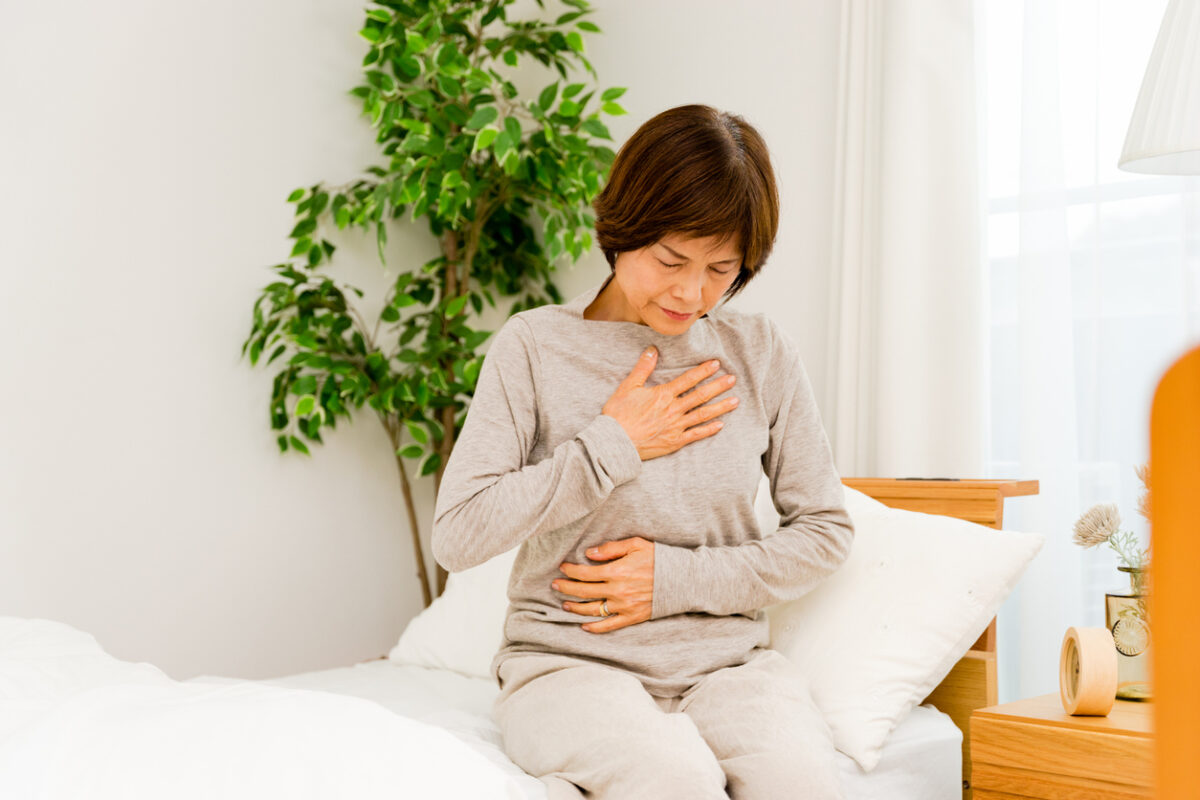Page Contents
ToggleExploring Post-Menopausal Breast Aches: What You Need to Know
As women age and go through menopause, they may experience various changes in their body, including post-menopausal breast aches. Understanding the potential causes and symptoms of these aches is important for maintaining breast health and overall well-being. In this article, we will explore post-menopausal breast aches in detail, discussing the possible reasons behind them and offering insights into when to seek medical attention. Whether you are currently experiencing breast discomfort or simply want to be informed about this topic, this information will provide you with the knowledge you need to navigate post-menopausal breast health confidently.
Identifying the Pain: Differentiating Between Normal and Concerning Aches
Identifying the Pain: Differentiating Between Normal and Concerning Aches – This title suggests that the article or discussion will focus on distinguishing between typical aches and pains that are part of everyday life and potential symptoms of more serious health issues. By understanding the difference between normal discomfort and worrisome symptoms, individuals can make informed decisions about seeking medical attention and taking appropriate actions for their well-being. This topic addresses the importance of recognizing when pain may signal a more significant underlying problem and emphasizes the significance of monitoring and addressing any concerning aches promptly.
Possible Causes: Understanding the Factors Behind Breast Discomfort
Breast discomfort after menopause can be caused by a variety of factors, including hormonal changes, menopausal symptoms like hot flashes and night sweats, weight gain, breast tissue changes, and medication side effects. Hormonal fluctuations during menopause can lead to breast tenderness or pain. Additionally, estrogen levels decrease during menopause, which can affect breast tissue and lead to discomfort. Weight gain during menopause can also contribute to breast discomfort due to increased pressure on the chest area. It is important to consult with a healthcare provider to determine the underlying cause of breast discomfort and receive appropriate treatment.
Importance of Regular Check-ups: Monitoring Breast Health After Menopause
Regular check-ups are crucial for monitoring breast health after menopause. As women age, the risk of developing breast cancer increases, making it even more important to stay vigilant. Regular screenings, such as mammograms and clinical breast exams, can help detect any abnormalities early on, improving the chances of successful treatment. By staying on top of their breast health through regular check-ups, women can take proactive steps to maintain their well-being and catch any potential issues before they become more serious. Don’t delay, schedule your check-up today.
Self-Care Practices: Techniques for Soothing Aches and Tension in the Breasts
To soothe aches and tension in the breasts, there are several self-care practices you can try. Firstly, wearing a supportive bra that fits well can help reduce strain on your breasts. Gentle breast massage and applying warm compresses can also provide relief. Engaging in relaxation techniques like deep breathing or meditation can help alleviate any stress or tension contributing to breast discomfort. Additionally, maintaining a healthy diet and staying hydrated can promote overall breast health. If pain persists or worsens, it’s important to consult a healthcare provider for further evaluation and treatment.
Lifestyle Adjustments: Tips for Managing and Alleviating Breast Discomfort
Lifestyle adjustments can help manage and alleviate breast discomfort. Start by wearing a properly fitting bra and avoiding tight clothing. Maintaining a healthy weight through diet and exercise can also make a difference. Try to reduce caffeine intake and stay hydrated. Regular exercise, especially low-impact activities like yoga or swimming, can help reduce discomfort. Finding ways to manage stress, such as through meditation or relaxation techniques, can also have a positive impact on breast discomfort. Consult with a healthcare provider for further guidance on managing and alleviating breast discomfort.
Seeking Clarity: When to Consult a Healthcare Professional About Breast Aches
If you are experiencing persistent or severe breast aches, it is important to consult a healthcare professional for further evaluation. Sudden or unexplained breast pain, lumps, changes in breast size or shape, nipple discharge, or skin changes on the breast should also prompt a visit to a healthcare provider. They can help determine the underlying cause of the discomfort, whether it be hormonal changes, injury, infection, or something more serious like breast cancer. Early detection and treatment of any potential issues is crucial for maintaining breast health. Don’t hesitate to seek medical advice if you have concerns about your breast aches.
Supportive Measures: Choosing the Right Bras and Clothing for Comfort
Choosing the right bras and clothing is essential for comfort and support. When it comes to bras, consider your size, shape, and preferences to find the perfect fit. Opt for bras with adjustable straps, wide bands, and soft fabrics for all-day comfort. As for clothing, choose breathable materials, loose-fitting styles, and seamless designs to prevent irritation and chafing. Remember to prioritize your comfort and well-being when selecting bras and clothing for everyday wear.
Summery
After menopause, some women may experience aches in their breasts due to hormonal changes, cysts, or benign growths. It is essential to monitor any persistent pain and consult a healthcare provider for a proper diagnosis. Management options may include lifestyle changes, pain relief medications, or hormone therapy, depending on the underlying cause. Regular breast self-exams and mammograms are also recommended for early detection of any potential issues. Overall, staying informed and seeking medical guidance can help address and alleviate breast aches effectively after menopause.


